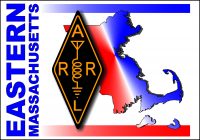On January 30, 2009, the ARRL’s Executive Committee released its Mobile Amateur Radio Operation Policy Statement in response to proposed legislation springing up across the country regarding the use of cellular telephones while driving.
Follows is a response from EMA/WMA State Government Liaison Shawn O’Donnell, K3HI:
QST MASSACHUSETTS AMATEUR RADIO OPERATORS
The ARRL’s January 30, 2009 policy statement on mobile amateur radio operation is a timely contribution to the national debate over the safe use of communications devices by operators of motor vehicles.
Several states have already enacted laws limiting the use of mobile telephones and other communications devices while driving. Many other states, including Massachusetts, have been considering such laws.
What’s the big deal?
An increasing number of studies show that it is risky to speak on a mobile telephone while operating a motor vehicle. Some research shows that driver skills drop as much from talking on the phone as they do from driving while intoxicated. Most state laws concerning cell phone use require hands-free operation, though the data appears to show that the source of driver distraction is not the cell phone hardware, but the conversation itself. The ARRL made a wise choice not to challenge the cell-phone studies; instead, they pointed out that amateurs tend not to be as absorbed in communications as people using cell phones or PDAs. Indeed, even the most long-winded hams spend more time listening rather than speaking–especially compared to the average cell phone user. (Try and time-out AT&T or Verizon’s network the way you can a repeater!) The ARRL’s choice to emphasize the lower level of distraction involved in ham radio operations is a sensible strategy. And the League’s decision to focus on public service communications–especially emergency communications–makes their case strong.
Don’t FCC regulations preempt state regulation of amateur mobile operations?Yes, but only to the extent that the FCC regulates licensing, modes of operation, frequencies, etc. The FCC does not regulate safe operation of motor vehicles–state governments do. So if Massachusetts says we can’t drive while holding a mic in our hand, that’s the Commonwealth’s prerogative.
So what does the ARRL’s policy statement do for us?
The ARRL is a private organization, and its policy positions have no direct impact on federal or state policy. But the ARRL’s opinions, especially with respect to emergency communications, do carry substantial weight with many state and federal officials. This policy statement could help persuade law makers to grant amateurs special consideration in any future legislation.
What should Massachusetts amateurs do?
As of today, we know of no pending legislation on Beacon Hill concerning mobile cell phone operation. But we are early in the current legislative session. Given the steady flow of proposed cell phone/driving laws over the last decade, however, we can expect that several state representatives and senators will file such bills soon. When the inevitable happens, Massachusetts amateurs should contact their representatives & senators with a request that they adopt the language of the ARRL policy statement in any future legislation. That would help ensure our ability to continue providing valuable public service communications.
Stay tuned for updates.
73,Shawn, K3HI
EMA/WMA ARRL State Government Liaison

